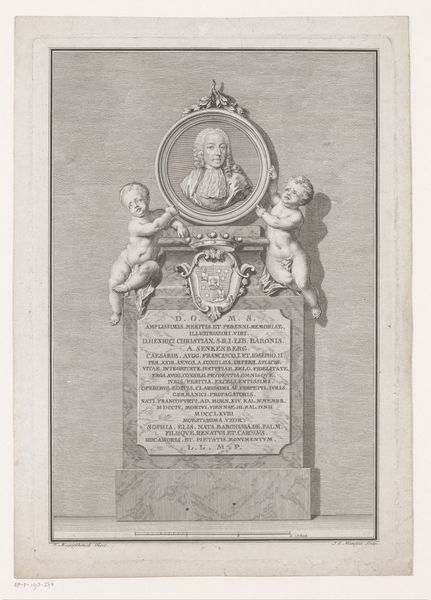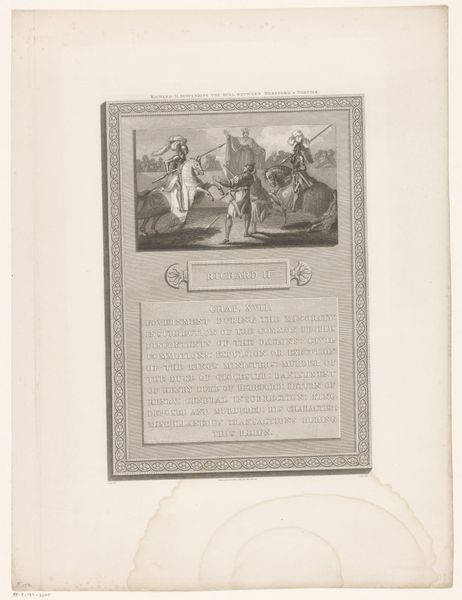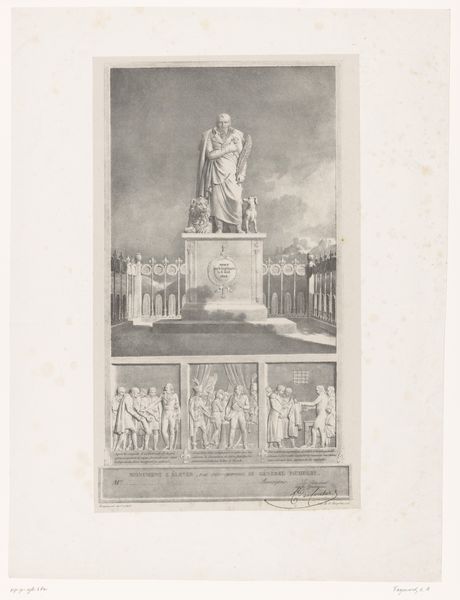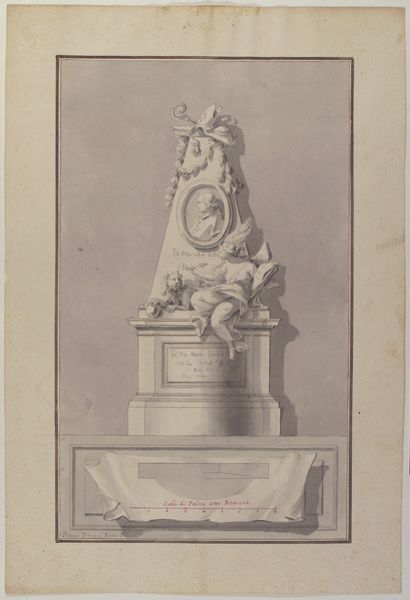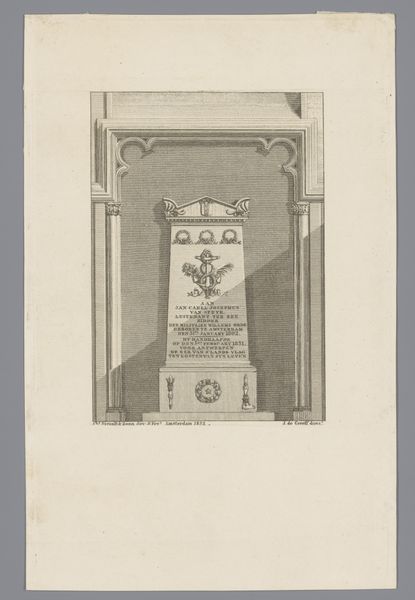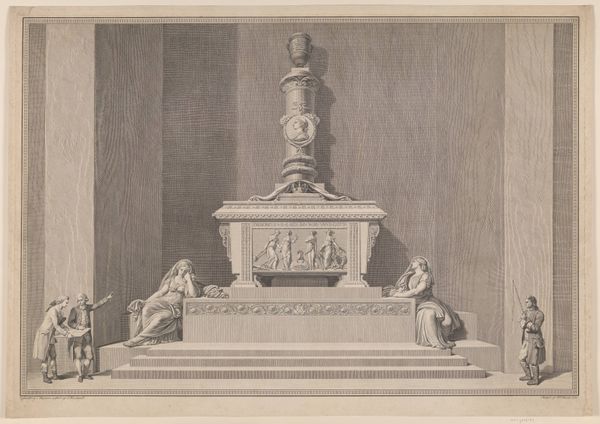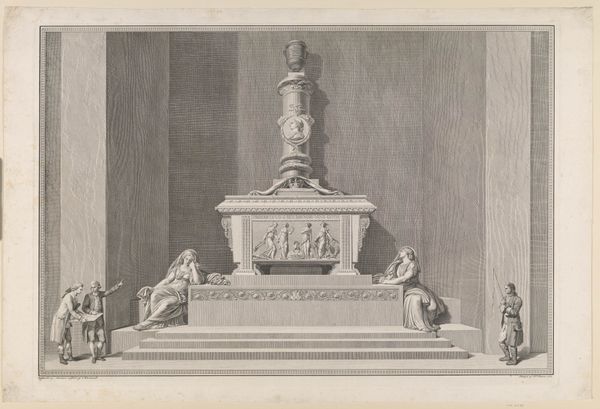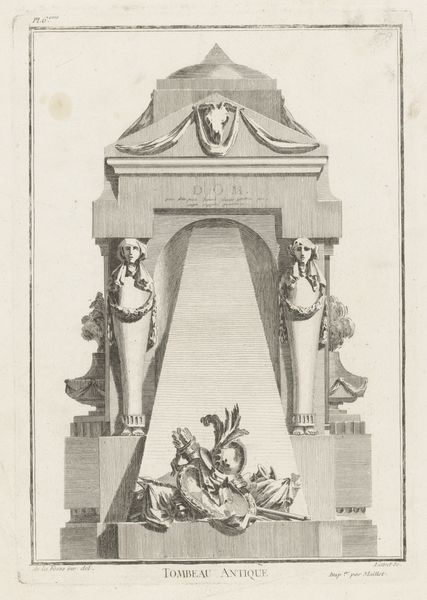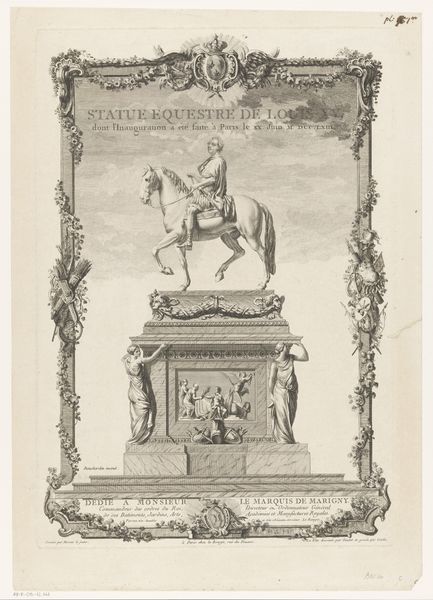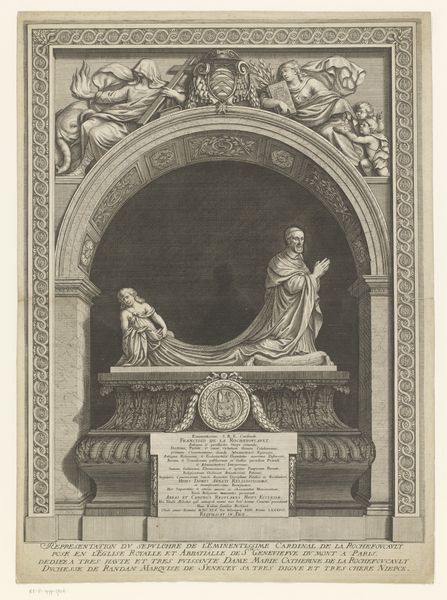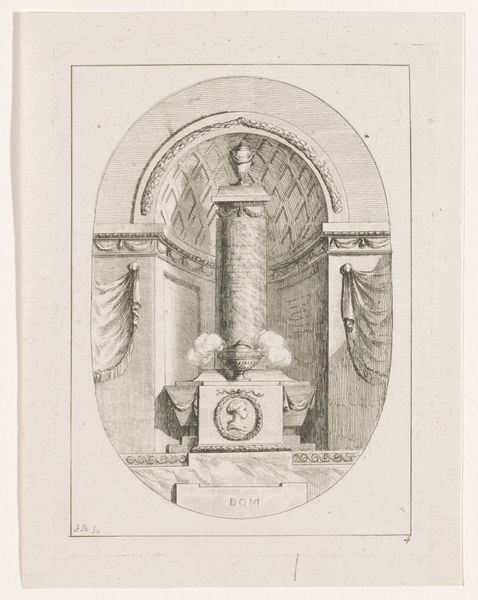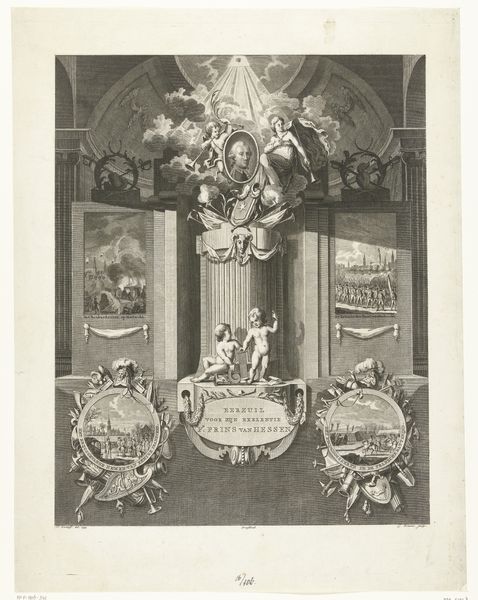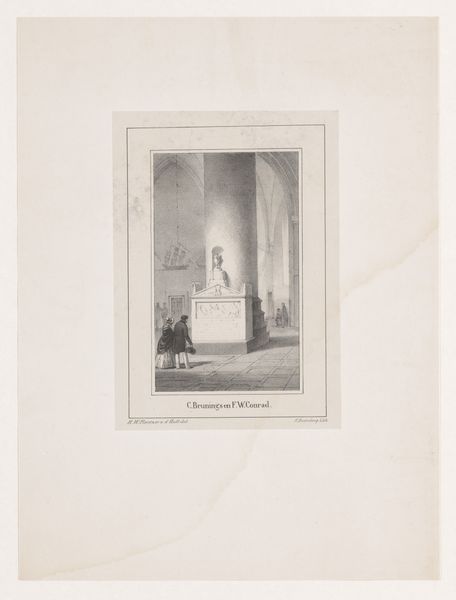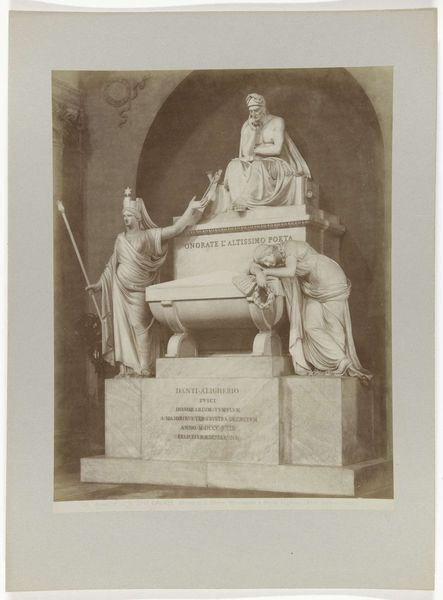
print, engraving
#
portrait
#
neoclacissism
# print
#
old engraving style
#
white palette
#
historical photography
#
history-painting
#
trompe-l'oeil
#
engraving
Dimensions: height 534 mm, width 389 mm
Copyright: Rijks Museum: Open Domain
Curator: This engraving, "Graftombe voor drie leden van de Stuart familie," produced between 1790 and 1844 by Domenico Marchetti, is striking. The precision of the lines and the overall symmetry create a sense of order and solemnity. The limited color palette focuses our attention on the form and composition. Editor: It’s certainly very detailed. It reminds me of a neoclassical monument, very controlled. What's your take on the arrangement of forms and lines in the work? Curator: Observe how Marchetti employs a clear vertical emphasis. The tomb itself rises emphatically, flanked by the massive columns on either side. The three portrait medallions are horizontally arranged within the larger pyramidal shape, which offers a sense of balance but also serves to direct the eye upwards. And, the weeping figures…do you note their contrapposto stance, their emotional poses almost perfectly mirroring each other? This all suggests careful calculation. Editor: Yes, the figures create visual mirroring around that forbidding doorway on the tomb! The tomb feels simultaneously closed off, yet adorned. How does this enhance the symbolic message? Curator: I’d suggest it creates a tension between eternal rest and enduring legacy. Consider also the contrast of the textures created by the engraving technique. Smooth surfaces on the tomb faces are offset against the patterned drapery and feathery wings of the angels, lending a dynamism to an otherwise static subject. Editor: I see what you mean. So the relationships between all of those forms communicate a controlled feeling, which really does evoke both solemnity and an enduring presence! It all points to that key principle of neoclassicism: clarity. Curator: Precisely. And within the rigid framework of neoclassical ideals, the artist achieves visual impact and emotive resonance through an acute awareness of balance, form, and contrast. Editor: It’s made me appreciate that neoclassical compositions are so meticulously planned out. It makes me want to study it further.
Comments
No comments
Be the first to comment and join the conversation on the ultimate creative platform.
